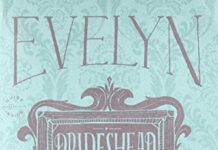
Ebook Info
- Published: 2006
- Number of pages: 288 pages
- Format: Epub
- File Size: 0.30 MB
- Authors: Aldous Huxley
Description
Aldous Huxley’s profoundly important classic of world literature, Brave New World is a searching vision of an unequal, technologically-advanced future where humans are genetically bred, socially indoctrinated, and pharmaceutically anesthetized to passively uphold an authoritarian ruling order–all at the cost of our freedom, full humanity, and perhaps also our souls. “A genius [who] who spent his life decrying the onward march of the Machine” (The New Yorker), Huxley was a man of incomparable talents: equally an artist, a spiritual seeker, and one of history’s keenest observers of human nature and civilization. Brave New World, his masterpiece, has enthralled and terrified millions of readers, and retains its urgent relevance to this day as both a warning to be heeded as we head into tomorrow and as thought-provoking, satisfying work of literature. Written in the shadow of the rise of fascism during the 1930s, Brave New World likewise speaks to a 21st-century world dominated by mass-entertainment, technology, medicine and pharmaceuticals, the arts of persuasion, and the hidden influence of elites.
User’s Reviews
Review “[A] masterpiece. … One of the most prophetic dystopian works of the 20th century.” — Wall Street Journal“As sparkling, as provocative, as brilliant…as the day it was published.” — Martin Green“One of the 20th century’s greatest writers.” — Washington Post“Chilling. . . . That he gave us the dark side of genetic engineering in 1932 is amazing.” — Providence Journal-Bulletin“A genius . . . a writer who spent his life decrying the onward march of the Machine.” — The New Yorker“Aldous Huxley is the greatest 20th century writer in English.” — Chicago Tribune“Huxley uses his erudite knowledge of human relations to compare our actual world with his prophetic fantasy of 1931. It is a frightening experience, indeed, to discover how much of his satirical prediction of a distant future became reality in so short a time.” — New York Times Book Review“A sometimes appallingly accurate view of today’s world.” — St. Louis Post-Dispatch “It’s time for everyone to read or reread Brave New World.” — Raleigh News & Observer
Reviews from Amazon users, collected at the time the book is getting published on UniedVRG. It can be related to shiping or paper quality instead of the book content:
⭐ Before there was ‘The Matrix’ and ‘Bladerunner’, before there was even ‘1984’, there was ‘Brave New World’. It is astonishing that Aldous Huxley wrote this tale of technological dystopia in 1932. The social elements from the story are similar to those in Orwell and Kafka and others, namely a society of obedient sheep run by the state and benevolent dictators through brainwashing and groupthink. But what’s striking about the novel is how it so astutely anticipates a society taken over by benevolent technocrats rather than politicians, a scenario that appears increasingly likely in the age of AI and genetic engineering.Huxley came from an illustrious scientific family with social connections. His grandfather was Thomas Henry Huxley, Darwin’s close friend, publicist and “bulldog”, whose famous smackdown of Bishop Samuel Wilberforce has been relished by rationalists fighting against religious faith ever since. His brother was Julian Huxley, a famous biologist who among other accomplishments wrote a marvelous tome on everything that was then known about biology with H. G. Wells. Steeped in scientific as well as social discourse, possessing a deep knowledge of medical and other scientific research, Aldous was in an ideal position to write a far-reaching novel.This he duly did. The basic premise of the novel sounds eerily prescient. Sometime in the near future, society has been regimented into a caste system where people are genetically engineered by the state in large state-run reproductive farms. Anticipating ‘The Handmaid’s Tale’, only a select few women and men are capable of providing fertile eggs and sperm for this careful social engineering. The higher castes are strong, intelligent and charismatic. The lower castes are turgid, obedient and physically weak. They don’t begrudge those from the upper castes because their genetic engineering has largely removed their propensity toward jealousy and violence. Most notably, because reproduction is now the responsibility of the state, there is no longer a concept of a family, of a father or mother. There is knowledge of these concepts, but it’s regarded as archaic history from a past era and is met with revulsion.How is this population kept under control? Not shockingly at all, through sex, drugs and rock and roll. Promiscuity is encouraged from childhood onwards and is simply a way of life, and everyone sleeps with everyone else, again without feeling jealousy or resentment (it was this depiction of promiscuity that led the book to be banned in India in the 60s). They flood their bodies with a drug called soma whenever they feel any kind of negative emotion welling up inside and party like there’s no end. They are brainwashed into believing the virtues of these and other interventions by the state through subliminal messages played when they are sleeping; such unconscious brainwashing goes all the way back to their birth. People do die, but out of sight, and when they are still looking young and attractive. Death is little more than a nuisance, a slight distraction from youth, beauty and fun.Like Neo from ‘The Matrix’, one particular citizen of this society named Bernard Marx starts feeling that there is more to the world than would be apparent from this state of induced bliss. On a tryst with a particularly attractive member of his caste in an Indian reservation in New Mexico, he comes across a man referred to as the savage. The savage is the product of an illegitimate encounter (back when there were parents) between a member of a lower caste and the Director of Hatcheries who oversees all the controlled reproduction. He has grown up without any of the enlightened instruments of the New World, but his mother has kept a copy of Shakespeare with her so he knows all of Shakespeare by heart and frequently quotes it. Marx brings the savage back to his society. The rest of the book describes the savage’s reaction to this supposed utopia and its ultimately tragic consequences. Ultimately he concludes that it’s better to have free will and feel occasionally unhappy, resentful and angry than live in a society where free will is squelched and the population is kept bathed in an induced state of artificial happiness.The vision of technological control in the novel is sweeping and frighteningly prescient. There is the brainwashing and complacent submission to the status quo that everyone undergoes which is similar to the messages provided in modern times by TV, social media and the 24-hour news cycle. There are the chemical and genetic interventions made by the state right in the embryonic stage to make sure that the embryos grow up with desired physical or mental advantages or deficiencies. These kinds of interventions are the exact kind feared by those wary of CRISPR and other genetic editing technologies. Finally, keeping the population preoccupied, entertained and away from critical thinking through sex and promiscuity is a particularly potent form of societal control that has been appreciated well by Victoria’s Secret, and that will not end with developments in virtual reality.In some sense, Huxley completely anticipates the social problems engendered by the technological takeover of human jobs by robots and AI. Once human beings are left with nothing to do, how does the state ensure that they are prevented from becoming bored and restless and causing all kinds of trouble? In his book “Homo Deus”, Yuval Harari asks the same questions and concludes that a technocratic society will come up with distractions like virtual reality video games, new psychoactive drugs and novel forms of sexual entertainment that will keep the vast majority of unemployed from becoming bored and potentially hostile. I do not know whether Harari read Huxley, but I do feel more frightened by Huxley than by Harari. One reason I feel more frightened is because of what he leaves out; the book was published in 1932, so it omits any discussion of nuclear weapons which were invented ten years later. The combination of nuclear weapons with limitless societal control through technology makes for a particularly combustible mix.The biggest prediction of Huxley’s dystopia, and one distinctly different from that made by Orwell or Kafka, is that instead of a socialist state, people’s minds are much more likely to be controlled in the near future by the leaders of technology companies like Google and Facebook who have formed an unholy nexus with the government. With their social media alerts and Fitbits and maps, the tech companies are increasingly telling us how to live our lives and distracting us from free thinking. Instead of communist regimes like the Soviet Union forcibly trampling on individual choice and liberty, we are already gently but willingly ceding our choices, privacy and liberties to machines and algorithms developed by these companies. And just like the state in Huxley and Orwell’s works, the leaders of these corporations will tell us why it’s in our best interests to let technology control our lives and freedom, when all the while it would really be in their best interests to tell us this. Our capitulation to their inventions will look helpful and voluntary and will feel pleasurable and even noble, but it will be no less complete than the capitulation of every individual in “Brave New World” or “1984”. The only question is, will there be any savages left among us to tell us how foolishly we are behaving?
⭐ Do NOT bother with the Kindle version. Specifically the one with the picture of the eggs and blood. There IS a kindle version that is the correct text (with the title in red banner) listed for $10+. But the eggs and blood version is completely different, simplified, dumbed down version of the physical book. The paperback format as pictured on the product page is what I have for my physical copy and they are vastly different. I read the kindle version while at work on my computer during slow periods and then came home and attempted to read the book version where I left off, only to find that chapters didn’t line up, there were entire pages of conversation missing towards the end of the book between Mustapha Mond and John, the Savage. ENTIRE. PAGES. Very upsetting to learn this. It shouldn’t be on the same product page listed as a kindle version. It’s a completely different version.DO NOT PURCHASE THE KINDLE VERSION.
⭐ I bought the Kindle edition for $1.49 (the one with eggs on the cover) and it is NOT the actual, original version; it is a watered-down, summary of sorts of the actual book. It basically takes the original version, changes the prose and wording to make it more “readable” and understandable in more modern language, I suppose. If that’s what you’re looking for, then I recommend this edition but if you’re looking for the original, you’ll need to spend a little more money to download the original with the man on the front cover. Maybe I missed some kind of disclosure but I don’t remember seeing anything saying this was a different version. Even though I’m only out $1 and some change, it’s still kind of disappointing that I wasted it on a book that’s seemingly advertised as the original. If they’ll sell a book that’s not the original for $1.49, I wonder if they’ll try to sell one that’s not the original for $10 or $15? If you didn’t know what you’re looking for and didn’t know this wasn’t the original, you’d just think you got a heck of a deal on a classic when, in reality, you were ripped off. I don’t typically give bad reviews and this review does not reflect the content of Brave New World but rather that of the actual sale/this particular version of the book. You can see on the pictures I’ve attached the differences in the wording from the original to the version I purchased.
⭐ The problem is not Huxleys writing, it is that this version is horrible, missing paragraphs and pages. I expect much better from Amazon, please refund my money and send me a full version of this classic. Thank you.
⭐ “Brave New World” by Aldous Huxley was written in the 1930’s. The first time I read this book I was in either middle school or high school. I recently re-read this book with a group of 12th grade students as a part of their english curriculum. It is so interesting how differently I view the book now as opposed to how I viewed the book 30+ years ago. Aspects of this book that I found either shocking or unbelievable when I was younger, such as the ability to customize a human baby, have now seemed to come true. Other parts, like how society became numb to humanity and emotion feels like a prophecy that is fast becoming a reality in the present world. If it has been a while since you read “Brave New World”, it’s tme to read it again with fresh eyes and different point of view. You won’t be disappointed and you may be pleasantly surprised at how well the book has held up. If you do decide to read it again, it is kind of fun finding all the Shakespeare references in the book. Kind of like the 1930’s version of finding the “easter egg” in a show or video game. Some Shakespearean references are more obvious and some are seemingly impossible to see. Good Luck and happy reading.
⭐ My generation recalls this book from grade school, as a warning of a possible future that is upon us—-a foreboding future.If you are now reaching your 20s, 30s, you probably never saw this book on a reading list. If you had a classical liberal education, covering 3 areas as required in my Ivy League institution, you read it again, perhaps. However, in the name of “relevancy” these requirements were abolished in the 1970s…..so you need to read this book NOW TO UNDERSTAND. The fall of Western Civilisation was predicted, and predictable. Someday, when all the classified material is available, scholars will be able to construct a coherent history of how this happened. That one great mind could conceive of it is nothing short of incredible. The book is absolutely necessary to be considered a well-read person.
⭐ I’m reading this book for the 5th time, so this is not a critic in the content, this is my favorite book and it deserves a 5 for sure. The physical book though is not well cut at the edges, I thought it wouldn’t matter much but after a bit of reading its annoying not to be able to turn the pages on the side. Other than that, the print is good, font size, paper, paper weight is good.
⭐ I am probably the last member of my generation to read this book, but better late than never, as they say. Of course this is a classic and I have no new critical insight to add. I started out listening to the audiobook version and ended up reading it on Kindle. I am not a big fan of it as a story. I found it really hard to relate to the characters and the storytelling just felt stiff to me. What I liked about this book is the look it gives into societal issues that have been with us forever, like discrimination, and the issues that could very soon become a reality, like cloning. Regarding the science portrayed, I think it is important as individuals and as members of a larger society, to consider the potential future implications of the scientific developments that seem to be coming at us fast and furious. In this book, the government has become the parents of every member of society and children are trained to do one thing and one thing only. Is that something we really want? The idea expressed of “peace at all costs” seems to be too high a price to pay. And yet, I fear that some of our current leaders would take us down just that path. If nothing else, this book provides a jumping off point for some very important discussions. But most importantly, it gives a glimpse of a future that is not so far-fetched in the 21st century as it was when the 1930’s.The discrimination issue also stood out to me very strongly. It seems like we have been talking about this issue forever and yet it never goes away. In my lifetime, I’ve seen the employment discrimination laws passed and affirmative action go in and out of favor. I also know that one of the ways that our brains organize our world is by “discriminating” red from blue, and apple from orange. In my opinion, it’s not the concept that’s wrong but the application. The way it is used in this story, to dictate the path of an individual’s life, is blatantly wrong and a violation of what it means to be human. The value of this presentation is that it gives the reader an opportunity, if they take it, to evaluate their own ways of discriminating and determine if they go too far. Because we are individuals, we should always be evaluating each other as individuals, not groups.I appreciate this book for the issues it addresses, and the thinking that it engenders. I think it is still relevant for readers of today and I encourage anyone who hasn’t yet picked it up to do so.
⭐ I picked the Kindle version of this book up not too long ago. And I had just finished reading this book. I know that people constantly love to go on about this, and George Orwell’s “1984” and “The Animal House”, as a dystopian trilogy of sorts that must be read and studied.I would guess that those same people are the same schizophrenics who view as these works of fiction as some harbinger of the future. To each their own, but from the stand-point of an actual, coherent, story, that one could follow and get enthralled in (it is a work of fiction, after all), this book falls WAY short. Reads as if some Dada-esq, thought-salad, throw random thoughts and story blurbs on the page, and hope that it sticks….Like the writer was on some cocaine/LSD-infused bender trying to piece-mail together some sort of coherent story (or, more like a product of the times back then it seems).The writing style also seems to work to serve as a way of him to faintly force his thinking and ideology. It ends up becoming hard to follow most of the time, disjointed, and difficult to get into. It certainly has it’s moments, but it’s muddled in the writer’s, almost manic, thoughts. It certainly is a thought-provoking read…But not for the right reasons. More like because of the writer’s style is making you take time out of the actual story/points to try to figure out who said what, and what that has to do with the story at large. It was definitely a grind to read, and the disjointed nature of Huxley’s writing makes it worse.Still leaving a 3-star mark as it was a decent story (for the parts that the author actually allowed you to fight through to get to), but damn if it isn’t like trying to run through quicksand trying to get to it.
⭐ Rating: Put it on your listLevel: Quick, easy readSummaryHuxley’s most famous book is set in a dystopian world roughly 600 years in the future; puns abound as the time is known as the Year of Our Ford, a reference to Henry Ford and the roll out of the Model T (all crosses at churches are cut to a ‘T’ and Ford is a used as a swear). The book explores eugenics as were feared by some at the time of the right (1932), including forced sterilization; strict classes separation for the sake of ‘order’; ‘sleep-learning’ and classical conditioning; open sexual ‘freedom’; and most famously, self medication with high power psychopharmaceuticals, in the book known as ‘Soma’.The book is famous enough I won’t spend any more time on the summary, but will note that it somewhat kicked off an era of in which some of the most famous dystopain books of the 20th century were written. Most notability, within 20 years both 1984 and Fahrenheit 451 were written. Both Brave New World and 1984 are widely considered two of the best books of the 20th century (though I find 451 more frighteningly accurate).My ThoughtsThis book is most famously contrasted with 1984, so I will get that out of the way, as the offer two competing views about books and our free time. In 1984, the government bans book, in Brave New World, there is no need. We have TVs (though hilariously viewed from his time as small and black and white), special entertainment complexes after work, orgies, and of course, Soma. Huxley’s view of the future had us seeking our own pleasure as the reason for our undoing.Along with technological issues, the other surprising thing to the modern reader might be his fear of the breakdown of the family. My copy was published in 1946 and in his forward he writes that he has heard there are parts of the US where the divorce rate is pushing 50%, of course we are now roughly that as a nation. As someone born in the 80s, after the sexual revolution and the advent of the no-fault divorce, this fear of his seems quaint and almost strange. Additionally, in the forward, he reflects that he set his world in the distance future, but feared we’d be closer to it by the end of the century. The sex didn’t get quite as crazy (mostly due to his fear of what would happen with minors) as he thought, and eugenics has (mostly) fallen away, but he was correct on some level as far as conditioning goes. Though, in our current world, the conditioning comes from media and our consumerist culture than it does from government ‘learning centers’ and schools. What he did nail was ‘Soma’, the explosion of pills lit up in the 90’s, 60 years after the writing of the book, not 600 (Xanax was released in 1981, less than 50 years out).He (obliviously) didn’t get everything correct, but many of the overall issues are still with us today, especially the way we are conditioned, often without knowing it. The writing is good, maybe not as quick and clear as it could be, but overall this is an easy and entertaining read. If you are a fan of dystopian literature, this is a must read. For everyone else, I think you need to put this on your list, if for nothing else than it’s cultural impact and significance. I think it is always fascinating to look at what those in past thought the future would be like.More reviews at MondayMorningTheologian.com
Keywords
Free Download Brave New World in Epub format
Brave New World Epub Free Download
Download Brave New World 2006 Epub Free
Brave New World 2006 Epub Free Download
Download Brave New World Epub
Free Download Ebook Brave New World




